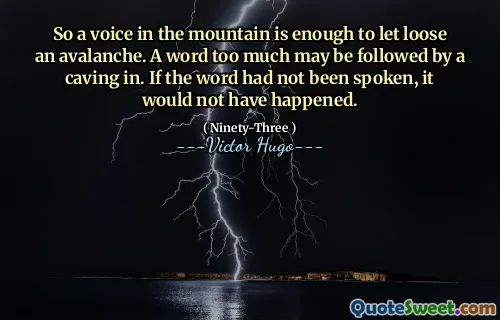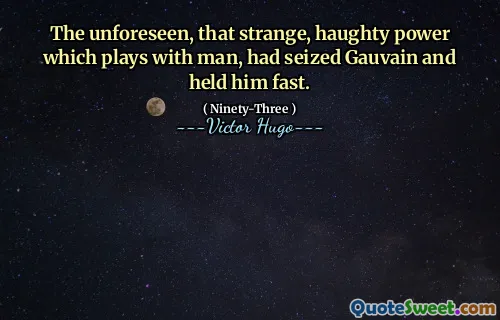Victor Hugo's novel "Ninety-Three" is set during the tumultuous period of the French Revolution, specifically in 1793. The story captures the complexities and conflicts of a society in upheaval, focusing on the moral dilemmas faced by its characters. It illustrates the harsh realities of war and the revolutionary fervor of the time, showcasing both the noble aspirations and the brutal consequences of revolutionary ideals.
The novel's central characters include a royalist nobleman, a revolutionary, and a peasant who embodies the struggles of the lower classes. As the narrative unfolds, their paths cross in moments that highlight the deep divisions within society. Each character's choices reflect their beliefs, loyalties, and the overarching theme of justice versus vengeance, painting a vivid portrayal of the era's ideological battles.
Through detailed descriptions and poignant dialogue, Hugo explores themes of sacrifice, loyalty, and the human condition. "Ninety-Three" stands as a powerful commentary on the nature of political power and the impact of revolutionary change, offering insights into the fragility of society during times of upheaval. Ultimately, the novel serves as both a historical reflection and a timeless exploration of human nature amidst chaos.
More »
Today Birthdays
1970 -
Shonda Rhimes
1599 -
Edmund Spenser
1940 -
Edmund White
1957 -
Lorrie Moore
1691 -
George Fox
1961 -
Wayne Coyne
1934 -
Carolyn See
1965 -
Bill Bailey
1967 -
Masha Gessen
1937 -
George Reisman
1890 -
Elmer Davis
1978 -
Nate Silver
1884 -
Sophie Tucker
1960 -
Matthew Bourne
1980 -
Maria de Villota
1977 -
Orlando Bloom
1976 -
Michael Pena
1952 -
Geoffrey Canada
1951 -
Frank Peretti
1955 -
Trevor Rabin
1808 -
Salmon P. Chase
1947 -
Robert Martin
1927 -
Sydney Brenner
1926 -
Carolyn Gold Heilbrun
1954 -
Denise Morrison
1960 -
Eric Betzig
1968 -
Traci Bingham
1919 -
Robert Stack
1970 -
Keith Coogan
1989 -
Beau Mirchoff


